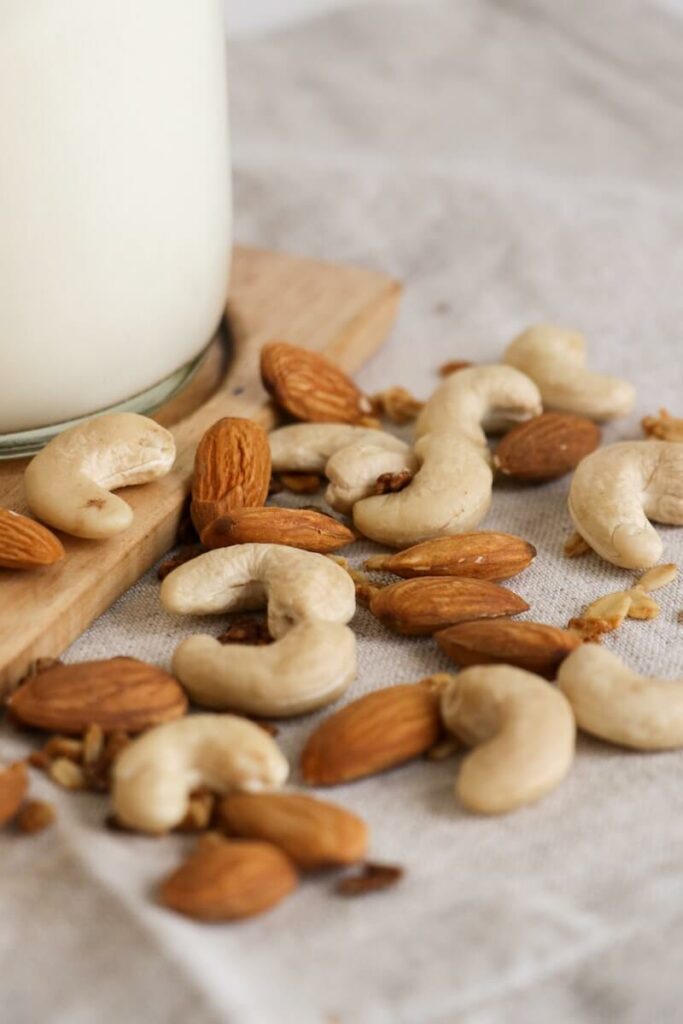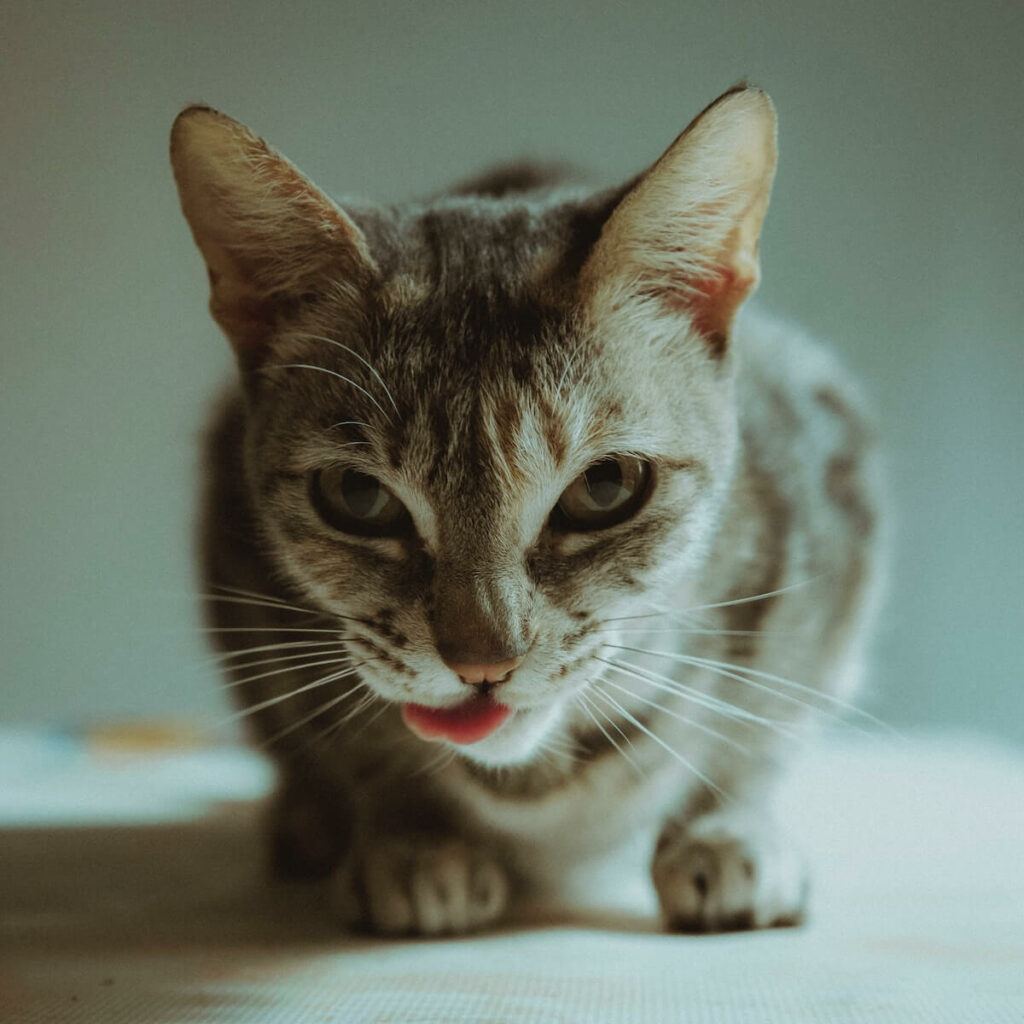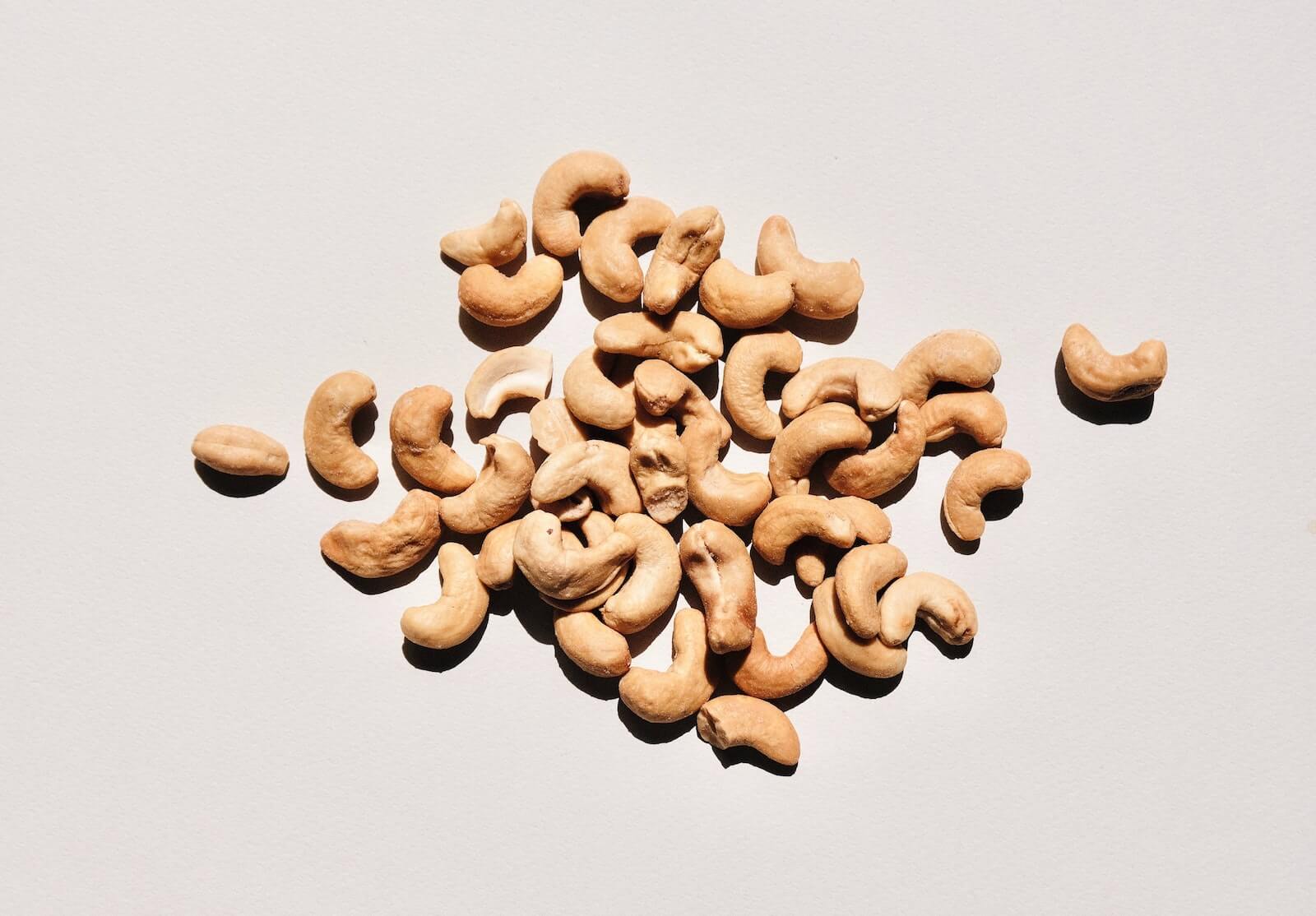Do you like to share your food with your pet? It is widespread that when we are at mealtime or watching a movie and having a tasty snack, our cat asks us for a bit of what we are enjoying, or if you have a rebel cat, it might come and steal a piece.
Surely you know that many of the snacks we eat are forbidden for cats (even we should avoid them too), for example, the fried or spicy ones or those with excess salt, sugar, and saturated fats. But there are other products that we munch on because they are natural and healthy, and you may ask yourself, can I share them with my cat?
Today, there is a vast and positive trend to move towards a more balanced diet that includes large amounts of vegetables, grains, and nuts. Among the most popular snacks is the delicious cashew nut, which can be consumed as a nut, butter, milk, and even as vegetable oil.
This small nut provides us with protein, fiber, and healthy fats, and among its health benefits is that it can help lower cholesterol, control blood sugar levels and promote heart health. But guess what? These fantastic benefits are only for humans. For cats, a cashew nut would be just another unhealthy filler.
How can a nut that is so beneficial to you be detrimental to your cat’s health? Strange, isn’t it? Well, here’s everything you need to know about this snack. Although it’s not cat poison, it’s not the best treat for your furry friend.
Can cats eat cashews? Are cashews toxic for cats?
Although not the best snack option for a cat, cashews are not poisonous to them. Eating cashews will not poison your cat, but it won’t bring health benefits. On the contrary, if your cat eats cashews regularly or in excess, it may present some medical problems, and I will explain why.

Domestic cats, like the big cats of the African savannah, are carnivores, meaning their body requires large amounts of animal proteins, never plant or of another kind. Imagine a lion in the wild, which only eats what it hunts. That is, it doesn’t consume any fat, condiments with sodium, sugar, or even vegetables.
Because of this heritage, your cat’s stomach is designed to digest only animal proteins, and any other food you give him may be heavy for his stomach, which is, let’s admit it, quite sensitive.
And exactly why shouldn’t cats eat cashews?
Here are 4 reasons why you should avoid giving your cat cashews:
1. Cashews are high in fat content
Cashews comprise approximately 46% fat, 25% carbohydrates, and 21% protein. Although the fat it contains is classified as unsaturated fat, it is a component that the cat’s body doesn’t need and accumulates. And what happens to the fat that the body doesn’t reuse as energy? It turns into pounds of excess weight.
Being overweight is one of the most common problems affecting domestic cats and pets today, and this is partly due to a poor diet and lack of exercise. One tip for you to know if your cat should lose weight is that the cat’s body should never be wider than the length of the whiskers.
2. Cashews are high in sodium
As we have already seen, your cat’s body doesn’t know how to process specific elements such as salt, so sometimes even small amounts can hurt its health. Natural cashews have a minimal level of sodium, but the salted or seasoned ones have a considerable percentage that, in excess, can cause dehydration.
If you decide to give one or two cashews to your cat, make sure he drinks plenty of water to prevent him from having a hard time.
3. Cashews are a choking hazard
Better safe than sorry, although it may seem a little exaggerated, you have to consider that the size of a cashew nut can be too big for your cat’s mouth and throat, in case he swallows it without chewing.
If you give a nut to your cat, make sure that it is split into two or three pieces. This way, you eliminate one of the points against using the cashew as a treat.
4. Cashews may cause pancreatitis
Pancreatitis is one of the most common diseases in cats in recent years. It refers to the inflammation of the pancreas, which affects several vital processes such as blood sugar regulation and the breakdown of fats, proteins, and carbohydrates.
Although the exact cause is unknown, it may be related to trauma, poison ingestion, parasitic infections, and inadequate diets.
What about cashew milk?
If you prepare the cashew milk yourself, there will probably be no problem for your cat to consume it because it only contains water and cashews, nothing else. It would be like the cat eating cashews but without the risk of choking on them. However, the reality is that the cashew milk we see on the market has dozens of additives such as sweeteners and preservatives, which are very bad for feline health.
If I had to choose between giving my cat a nut or some homemade cashew milk, I would go with the latter option, though, of course, a decent measure of no more than 4 ounces, and as a sporadic, not daily, treat.
Healthy treat alternatives for your cat
- Cheese
- Banana
- Berries
- Carrot
- Oatmeal
- Pumpkin
- Celery
- Eggs
- Spinach
- Fish
- Meat
- Apple
Don’t give them popcorn or almonds either, if possible.

Can cats eat cashews? Final words
Now that you know the answer to the question, “can cats eat cashews?” it’s up to you to decide. If we consider all the factors involved, the risks outweigh the benefits. There are many other healthy and delicious snacks that you can give your cat without having to worry about its health. Why take the risk?
Next time you want to share your delicious cashews with your cat, remember this article, and if you decide to do so, give him just one or two to take away the craving, and if your cat asks for more, you now have a great list of tasty snacks you can give him. Do you have any other treats we can add to the list? Write in the comments!
